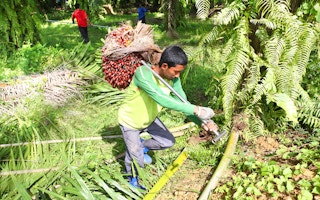Over the past 15 years, palm oil has been under increased scrutiny for its negative environmental and social impacts. Environmental issues highlighted include extensive deforestation, habitat loss for threatened and endangered species, poor air quality from burning forests and peatlands, as well as greenhouse gas emissions deriving from land use change. On the social side, the greatest concerns revolve around land rights of communities, as well as labour conditions in plantations and the potential exploitation and exclusion of smallholders from the value chain.
This new paper from CSR Asia looks at the experience of smallholders in the case of palm oil – primarily through the work of the Roundtable on Sustainable Palm Oil (RSPO) set up in 2003 to define and implement standards for sustainable palm oil. In particular, the paper examines the certification of sustainable palm oil and the opportunities that this can provide for smallholders.
The public debate on palm oil has often centred on large corporate entities driving the industry, ignoring the fact that smallholders play a critical role in the sector. In the large palm-producing countries, smallholders make up over 40 per cent of planted hectares. In emerging palm growing markets, such as Thailand, smallholders make up almost 80 per cent of production area.
In addition to the important current role of smallholders in oil palm, the report explores the lessons from palm oil, and opportunities for large palm oil producers to expand the model of smallholder inclusion. This is seen as key to the local license to operate, and often is one of the critical negotiation cards held by the large companies when acquiring land.
“
Private sector companies are best placed to drive inclusive business opportunities for smallholders and enhance productivity
Key findings of the report include:
- Robust land governance is a prerequisite for sustained success of smallholder and community programmes and avoidance of conflict. RSPO social tools have proven useful to address these challenges, but more robust implementation is still needed
- Private sector companies are best placed to drive inclusive business opportunities for smallholders and enhance productivity, but may need support for funding and capacity building
- The most important role of government is to provide clarity on legal land titles and enable civil resolution of conflict without interference. In addition, government can supply funding and capacity to companies wishing to engage smallholders in marginal locations
- Intergovernmental and Non-Governmental Organisations play critical roles as watchdogs, facilitators and advocates for communities and smallholders
- Multi-stakeholder initiatives have the potential to create sector-wide, systemic change, focussing on joint solutions, resulting in better informed, better supported and more sustainable policy and practice changes
- As pressures on companies to reduce carbon emissions and protect forests are mounting, specific consideration and participatory frameworks must be developed to ensure that land set-asides does not prevent communities from access to development and basic needs
- Women’s economic empowerment has received little attention within the RSPO framework, but robust free prior and consent approaches can be adjusted and improved to strengthen opportunities for women
- Reliance on retailers and brand support is unlikely to drive inclusive agriculture models, as there is scant willingness to pay a premium. Instead focus on traceable and low-risk supply chains can be leveraged as a strategic advantage
Using the example of the RSPO, the paper argues that multi-stakeholder initiatives (MSIs) are seen as potentially powerful institutions filling the governance gap that exists around complex sustainability issues. Voluntary initiatives across an entire sector can change policies and practices, and attitudes and beliefs of companies.
MSIs have the potential to create sector-wide, systemic change, focussing on joint solutions, resulting in better informed, better supported and more sustainable policy and practice changes. Inclusive business interventions associated with a MSI can help to address the interests of underrepresented, marginalised and vulnerable groups.
The paper, written by CSR Asia is part of a partnership with Oxfam on inclusive business value chains. Professor Richard Welford is chairman of CSR Asia. This post originally appeared in CSR Asia.


















